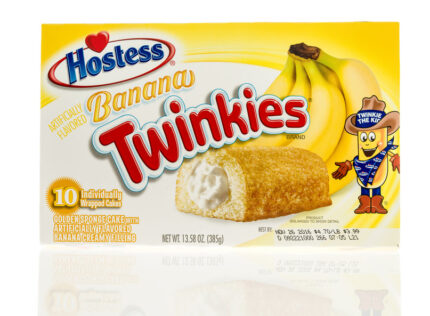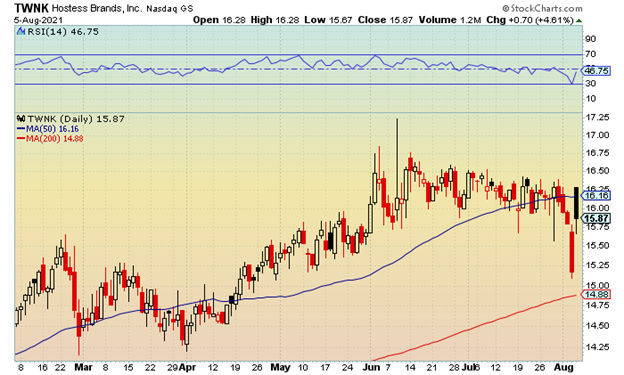Hostess Brands (TWNK) is an iconic brand that has been around for decades and is the reincarnation of the old Hostess Brands. Some of its best-selling products include: Twinkies, Ho-Hos, Hostess Cupcakes, Ding-Dongs, as well as breads and cookies. Which filed for bankruptcy in 2012.
A couple of years ago, Hostess Brands bought Voortman Cookies, a Canada-based company. The integration seems to have been a smooth process, as sales have increased during the very first quarter since the closing.
Hostess also acquired the Big Texas and Cloverhill brands in 2018. All of these companies’ products, plus the previously-acquired Voortman Cookies, are now fully integrated within the company’s distribution network.
The pandemic-driven demand for packaged foods could stick around longer than many expect, especially with the new delta variant becoming so common in the U.S. Food stocks like Hostess can also provide some insurance against unexpected setbacks in progress against the pandemic, including vaccine-resistant variants.
Hostess recently announced second-quarter earnings with a profit of $0.23 per share, versus forecasts of $0.21. This was at least the fifth-straight earnings beat, with double-digit net revenue growth coming in at $291 million versus estimates of $272 million.
For 2021, the company is expecting full-year earnings of $0.84 per share on revenue just under $1.1 billion. For 2022, profits are expected to reach $0.92 per share of sales above $1.1 billion.
There are 10 analysts who currently cover the stock, giving TWNK three strong buy ratings, four buys, two holds, and one underperform rating. The highest price target is at $19, representing an upside of nearly 20% from current levels.
The chart below shows key resistance at the $16.40 level. Support is at $15.20–$15 and the 200-day moving average if shares reverse course following the gap higher on the earnings news.
Although Hostess Brands does not pay a dividend, given its turnaround success, I would argue that it is one of the most under-appreciated stories on Wall Street. For investors looking for safety and longer-term value, the stock does trade options, which can be used to write covered calls to lower the cost basis.
For example, the TWNK January 17.50 calls are currently near $1 and could be sold to lower the cost basis back below the $15 level. If shares are above $17.50 by January 21, 2022, you will be “called away” for roughly an 18% gain from current levels. If shares are below $17.50, you could then write another call option to lower the cost basis.
These calls can also be used by aggressive option traders looking for shares to make a run towards $19-$20 over the next six months. If shares are above $19.50 by expiration, these call options would be $2 “in-the-money” for a return of 100%.
The breakeven price would be if shares are at $18.50 by late January. A close below the $17.50 would lead to the entire loss of premium paid.







